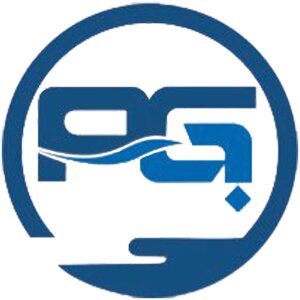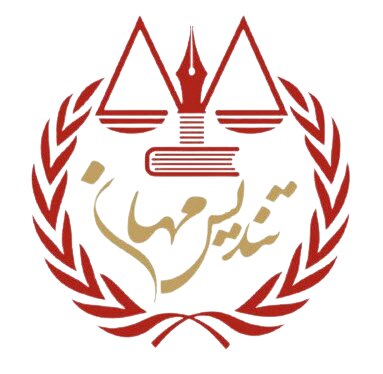Best International Trade Law Lawyers in Tehran
Share your needs with us, get contacted by law firms.
Free. Takes 2 min.
List of the best lawyers in Tehran, Iran
About International Trade Law in Tehran, Iran
International Trade Law in Tehran, Iran, is a crucial aspect of the country's legal system. It governs the regulations and agreements necessary for Iranian businesses and international companies to engage in cross-border trade. Tehran, as the capital, serves as the central hub where most international trade operations are coordinated. This field of law covers various areas including import and export regulations, trade compliance, tariffs, and international treaties. With Iran's strategic location and rich resources, understanding and navigating International Trade Law is essential for businesses looking to operate effectively and avoid legal pitfalls.
Why You May Need a Lawyer
There are several situations where you may require legal assistance in the realm of International Trade Law:
If you are a business looking to import or export goods, a lawyer can help ensure compliance with local and international regulations. If your company is planning to enter a joint venture with a foreign entity, a lawyer can assist with drafting and reviewing contracts to protect your interests. Dealing with trade disputes, whether they involve customs issues, import-export restrictions, or trade sanctions, often requires legal expertise to resolve efficiently. Additionally, if you are subject to trade sanctions, penalties, or intellectual property infringements related to international trade, a lawyer's guidance can be invaluable in navigating these complex issues.
Local Laws Overview
International Trade Law in Tehran is influenced by Iranian national laws and a series of international agreements and treaties to which Iran is a party. Key aspects include compliance with the Iranian Customs Law, which dictates import and export tariffs, licenses, and permits. Businesses must also comply with trade-related aspects of intellectual property rights as prescribed by the government. In addition, international sanctions and their implications on trade with Iran are a critical consideration. The framework for dispute resolution, including arbitration and mediation as aligned with international norms, is also a significant facet of Iran's local laws.
Frequently Asked Questions
What is the role of international treaties in Iran's trade laws?
International treaties in which Iran participates set the framework for fair and law-abiding trade practices. They establish rules on tariffs, trade barriers, and other import-export regulations that businesses must follow.
How do sanctions impact trade in Iran?
Sanctions can severely impact the ability of Iranian businesses to engage in international trade. They may limit access to goods, services, and financial systems, complicating compliance and increasing legal risks.
What licenses and permits are needed for importing goods into Iran?
Importers are required to obtain licenses from the Ministry of Industry, Mine and Trade and customs clearance from the Iranian Customs Administration to legally bring goods into Iran.
Are there specific trade agreements Iran is currently a part of?
Iran is not part of many international trade agreements like the WTO but has bilateral trade agreements with certain countries. These agreements outline specific trade terms and regulations applicable to those involved parties.
What are the main compliance challenges faced by Iranian exporters?
Exporters must navigate issues like varying international standards, intricate export documentation, and differing national regulations and sanctions policies, presenting compliance challenges.
How can businesses protect their intellectual property in Iran?
Companies should register their trademarks, patents, and copyrights with the Iranian Industrial Property Office to obtain legal protection against infringement.
Is arbitration a common method for resolving international trade disputes in Iran?
Yes, arbitration is frequently employed as it provides a neutral platform and is generally faster and more flexible than domestic court proceedings for resolving disputes.
How does Iran's legal framework regulate foreign investments?
Foreign investments are regulated by the Foreign Investment Promotion and Protection Act (FIPPA), which provides a legal framework for safeguarding foreign investors’ rights and interests.
What is the Iranian Customs Tariff Law?
The Iranian Customs Tariff Law governs the classification and duties applicable to indexed goods during the importation or exportation process.
How can businesses stay updated on changes in trade law regulations?
By consulting legal professionals specializing in international trade, subscribing to official government communications, and engaging with relevant trade associations.
Additional Resources
Iranian Customs Administration: This government body provides comprehensive information on customs regulations, tariffs, and procedures.
Iran Chamber of Commerce, Industries, Mines and Agriculture: Offers resources and updates on trade opportunities and regulatory changes.
Iran International Trade Law Association: A professional organization that facilitates networking and provides insights into trade law developments.
Next Steps
If you're seeking legal assistance in International Trade Law, consider consulting with a qualified lawyer specializing in this field. Many law firms in Tehran offer excellent legal services tailored to international trade. Consultations can help clarify your legal standing, outline a plan of action, and provide guidance on compliance and risk management in trade activities. It is advisable to have all your documents and queries prepared in advance to optimize the consultation process.
Lawzana helps you find the best lawyers and law firms in Tehran through a curated and pre-screened list of qualified legal professionals. Our platform offers rankings and detailed profiles of attorneys and law firms, allowing you to compare based on practice areas, including International Trade Law, experience, and client feedback.
Each profile includes a description of the firm's areas of practice, client reviews, team members and partners, year of establishment, spoken languages, office locations, contact information, social media presence, and any published articles or resources. Most firms on our platform speak English and are experienced in both local and international legal matters.
Get a quote from top-rated law firms in Tehran, Iran — quickly, securely, and without unnecessary hassle.
Disclaimer:
The information provided on this page is for general informational purposes only and does not constitute legal advice. While we strive to ensure the accuracy and relevance of the content, legal information may change over time, and interpretations of the law can vary. You should always consult with a qualified legal professional for advice specific to your situation.
We disclaim all liability for actions taken or not taken based on the content of this page. If you believe any information is incorrect or outdated, please contact us, and we will review and update it where appropriate.















